- Details
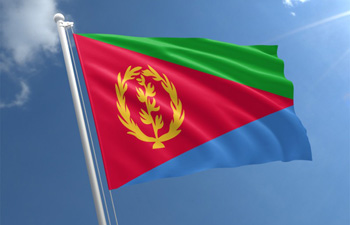
Original post: The New York Times
28 March
GENEVA — Eritrea must investigate allegations of extrajudicial killings by its security forces and resolve the fate of dozens of missing detainees, including a former finance minister, a United Nations human rights watchdog said on Thursday.
Military conscripts should not be to subjected to forced labor in mining or construction "while receiving no or very little salary" during indefinite national service, it said.
- Details
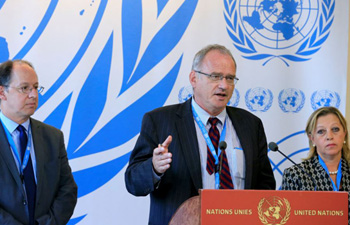
U.N. Independent Investigation on Burundi independent experts, from left, Pablo de Greiff, Christof Heyns and Maya Sahli-Fadel, talk to the media after presenting a final report to the Human Rights Council in Geneva, Sept. 27, 2016.
28 March
GENEVA — U.N. Human Rights experts are calling on the government of Eritrea to clarify the fate of dozens of disappeared people whose whereabouts have remained unknown since 2001.
Eritrea is one of seven countries examined by the Human Rights Committee, which monitors the implementation of the International Covenant on Civil and Political Rights.
The 18 independent experts of the Human Rights Committee have many concerns about the prevailing situation in Eritrea.
UN HRCtte hears half-day of contributions on a new general comment on the right of peaceful assembly
- Details
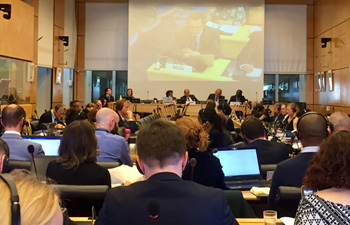
28 March
On 20 March the UN Human Rights Committee (HRCtte) dedicated a half-day of their current 125th session to hearing from civil society and expert stakeholders who had made written contributions concerning their next general comment, which will be on the right to peaceful assembly.
The HRCtte is one of the UN’s “treaty bodies”, and overseas the implementation of the International Covenant on Civil and Political Rights (ICCPR). In addition to receiving state reports and individual petitions, the treaty bodies also periodically adopt “General Comments” which are designed to condense their jurisprudence and provide interpretive guidance on their respective treaties. The HRCtte’s most recent general comment was No.36 on the right to life (Art.6).
- Details
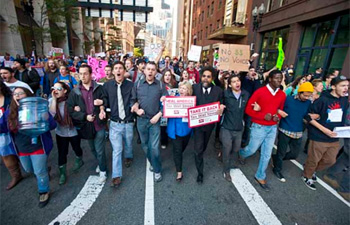
 Original post
Original post
Welcoming remarks by Christof Heyns
GENEVA (20 March 2019) - The Human Rights Committee this morning held a half-day general comments discussion in preparation for a general comment on article 21 of the International Covenant on Civil and Political Rights on the right of peaceful assembly.
Introducing the general comment, Christof Heyns, Committee Expert and Rapporteur for the general comment N°37, said that protest action was a defining part of the modern era and that allowing a platform for peaceful protest within a sensible framework was an integral part of the quest for a more peaceful world. The drafting process offered a singular opportunity to develop a coherent framework on which to base the future jurisprudence and to examine how new developments in the world impacted this right. Clearly, he said, assemblies were a “different animal” in the world of instant communications, surveillance, many more forms of non-lethal weapons, and the increasing use of drones in policing actions. Based on the written submissions received so far and today’s discussion, the Committee would develop the first draft of the general comment, which would be publicly discussed in July 2019, while the final version was expected by end of 2020.
- Details
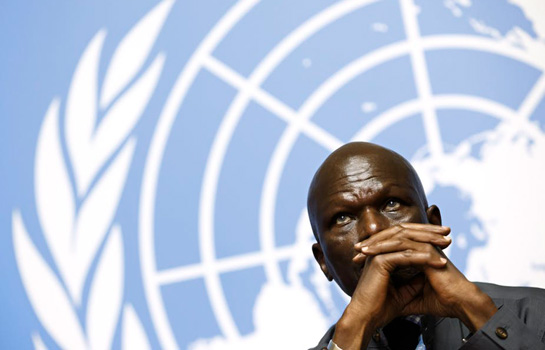
13 March
Author: Christof Heyns
After 23 years, the UN Human Rights Office in Burundi has closed – at the insistence of the country’s government. The Conversation Africa’s Moina Spooner spoke to Professor Christof Heyns, who was Chair of the United Nations Independent Investigation on Burundi, about the closure, why it happened and what this means for the country.
- Geneva diplomats briefed about new research on the national impact of United Nations treaty bodies
- New publication by Stuart Casey-Maslen: The Treaty on the Prohibition of Nuclear Weapons: A Commentary
- Invitation: SDG Public Lecture Series
- UN Job Opening: Internship-Human Rights (Regional), I (Temporary Job Opening)
